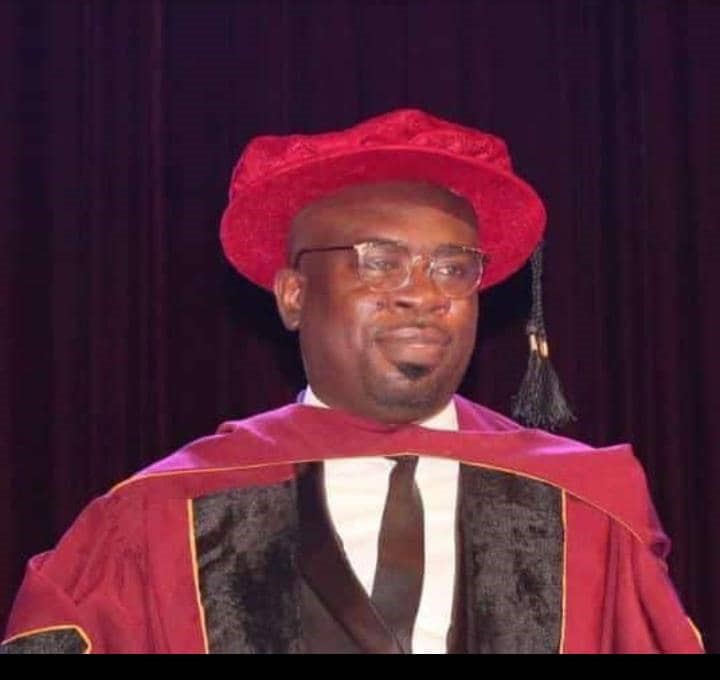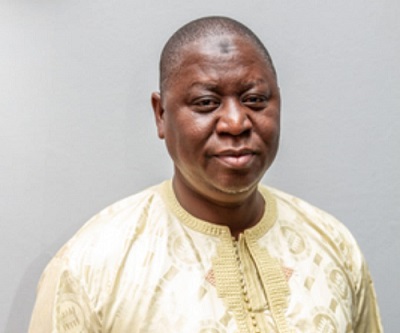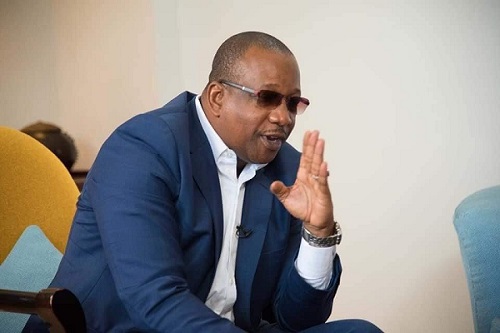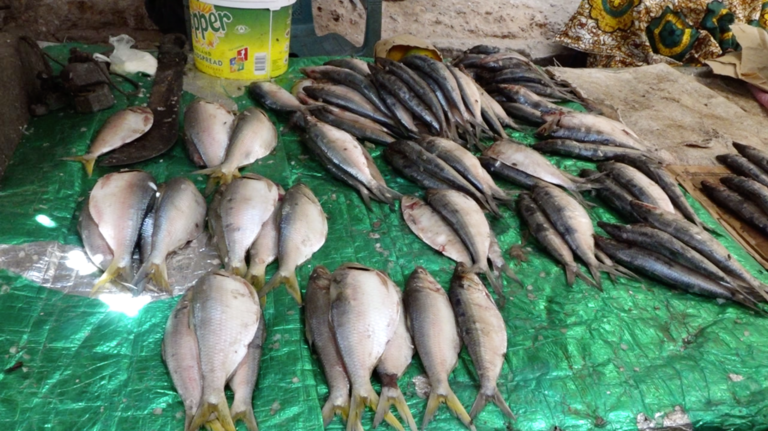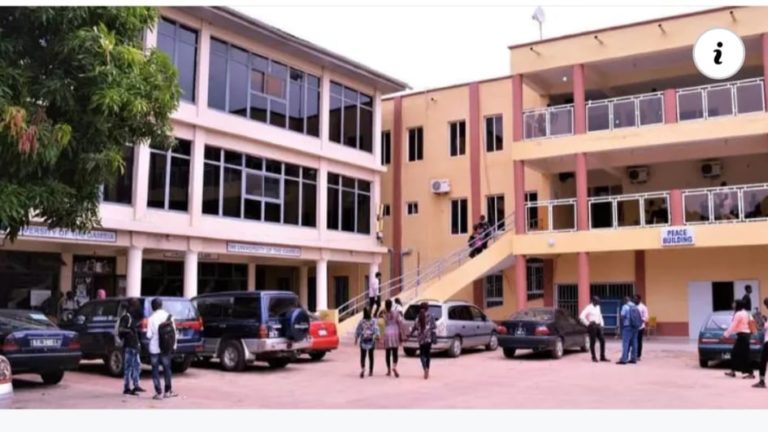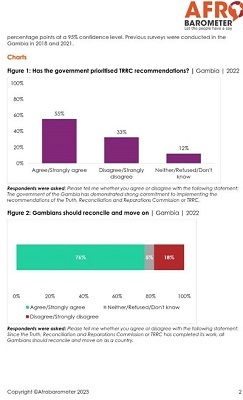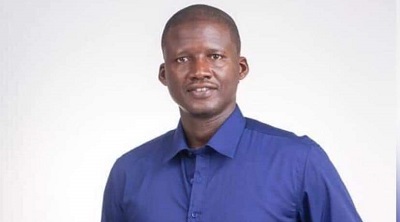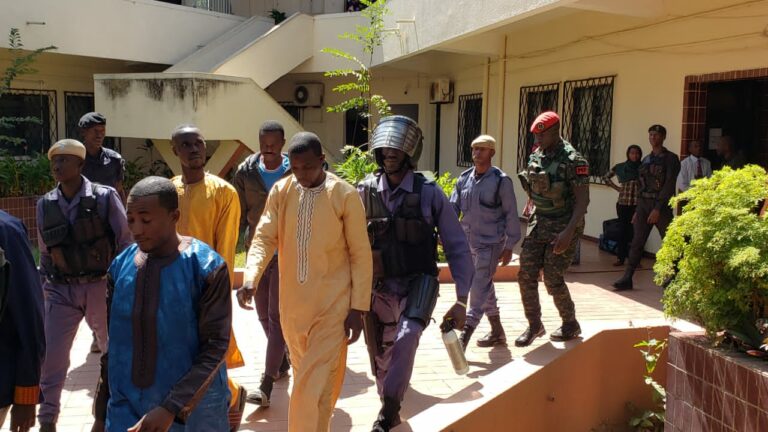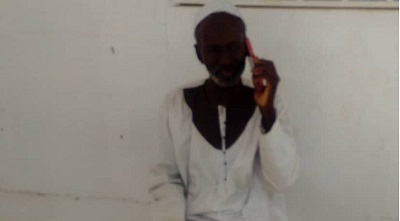By News desk
BAR student at Gambia Law School Pushes for Traditional Medicine Legislation

Professor Raphael Nyarkotey Obu
Despite the tedious nature of the Bar Professional Course at the Law School, Professor Raphael Nyarkotey Obu, a Ghanaian Professor of Naturopathic Healthcare, and current Bar student at the Gambia Law School, Banjul, has proven that he is a scholar, an advocate, and a change maker by publishing an important legal commentary titled “The Need for Traditional, Complementary, and Alternative Medicine Legislation in the Gambia” in the Asian Journal of Language, Literature and Culture Studies. Additional four legal commentaries on traditional and alternative medicines have also been accepted for publication as a Bar student.
He has been working with the traditional healers in the Gambia to help change the negative image in their industry. This is unprecedented in the Bar professional course to see a student supporting a social course in the Gambia. Prof. Nyarkotey, who is also the president, Nyarkotey University College of Holistic Medicine in Ghana, has granted scholarship opportunities to 10 Gambian Traditional healers who are members of the National Traditional Healers Association of The Gambia (TRAHASS). The scholarship package worth 10,000 dollars will help the practitioners to pursue their academic program in Naturopathic Medicine at his established naturopathic medical school in Ghana. The Professor also plans to provide scholarships to young ones interested in pursuing Higher National Diploma (HND) and bachelor’s degree programs in Naturopathic Medicine in Ghana.
The Nyarkotey University College of Holistic Medicine and Technology is Ghana’s first Naturopathic and Holistic Medicine College, registered under the Commission for Technical and Vocational Education and Training (CTVET), Ghana, and recognized by the Traditional Medicine Practice Council, Ministry of Health, Ghana. The college is also an educational Member of the World Naturopathic Federation, (WNF), Canada. The College’s Naturopathic programs meet the WNF and World Health Organization (WHO), benchmarked for Naturopathic Medical Education.
The College is currently the only institution in Africa to develop the first-ever National Occupational Standard in Naturopathy and Holistic Medicine at the Higher National Diploma (HND) and bachelor’s level under the Commission for Technical and Vocational Education and Training (CTVET).
Risk of unregulated Profession
Professor Nyarkotey explained that in countries where regulation exists, the risk of traditional practices has been reported in the media space. What would therefore be the case for countries without legislation and regulation? He quoted studies that justified that babies of women delivered in an “unorthodox health centre” had a significantly higher incidence of birth asphyxia than babies born in a hospital.
He also bemoans that traditional healers’ refusal to refer cases to mainstream facilities to seek standard medical treatment leads to a disaster. Based on several studies attesting to the fact that unregulated professions pose a public health risk, Prof. Nyarkotey emphasized that the government of The Gambia should take interest in regulating traditional and complementary medicine practitioners. This is to prevent harm. Besides, this is grounded on the doctrine of natural medicine; do no harm. Moreover, it is the duty of the Gambia government to protect the well-being of the citizenry regardless of whether the citizenry is subjectively content with the treatment that they are receiving.
He cited that countries such as China and India are benefiting from traditional therapies due to effective regulation. Ghana has over 55 government Hospitals with herbal medicine departments with trained Medical Phythotherapists. The economy of Ghana and the healthcare space is benefitting from effective regulation of traditional and complementary therapies.
Also, in the present situation in the Gambia, without statutory provisions for practitioners, establishing standards may be difficult. For instance, some commentators held the view that self-regulation is meant for personal interest and not for the public good and that organizations that engaged in self-regulation have a challenge in enforcement.
Hence, when government regulates, it is to further the public good. He explained how government regulations have impacted the standards in mainstream medical practice. We have seen the relevance of regulation in countries with traditional medical practice. They have national licensing standards, educational requirements and standards in the practice. Licensing of practitioners provides public confidence in any profession.
The Business of Traditional Medicine
Prof. Nyarkotey also held that many opportunities are associated with legislative regulation. For instance, the global market for traditional therapies stood at more than US$ 60 billion in 2000(WHO,2022), and is steadily growing.
The Gambia is a nation of tea lovers specially attaya (green tea), black tea, coffee, and loose tea; a market report by Market Research. Com (2020) found that the tea market was equal to 18.40 million USD (calculated in retail prices) in 2015. Until 2025, the tea market in the Gambia is forecast to reach 48.18 million USD (in retail prices), thus increasing at a compound annual growth rate (CAGR) of 9.01% per annum for the period 2020-2025. This is a decrease, compared to the growth of about 11.46% per year, registered in 2015-2019.
The average consumption per capita in value terms reached 9.61 USD per capita (in retail prices) in 2015. In the next five years, it grew at a CAGR of 8.16% per annum. In the medium term (by 2025), the indicator is forecast to slow down its growth and increase at a CAGR of 5.92% per annum.
In this report, the coffee alone instant market in Gambia was equal to 2.80 million USD (calculated in retail prices) in 2015. Until 2025, the coffee market in the Gambia is forecast to reach 11.51 million USD (in retail prices), thus increasing at a CAGR of 12.80% per annum for the period 2020-2025. This is a decrease, compared to the growth of about 18.39% per year, registered in 2015-2019.
The average consumption per capita in value terms reached 1.48 USD per capita (in retail prices) in 2015. In the next five years, it grew at a CAGR of 14.23% per annum. In the medium term (by 2025), the indicator is forecast to slow down its growth and increase at a CAGR of 9.67% per annum.
Also, Statista (2022) reports that the Gambia tea revenue amounts to US$39.83m in 2023. The market is expected to grow annually by 4.71% (CAGR 2023-2025). The interesting thing is that in global comparison, most of the tea revenue is generated in China (US$111,800.00m in 2023) according to Statista (2022).
This could either be a negative or positive market outlook for the Gambia, as they contribute to the tea market outlook of China. I believe that legislation and strict regulation of the traditional and complementary medicine industry have a chance to benefit the Gambian economy.
The same report also revealed that by 2025, 16% of spending and 1% of volume consumption in the Tea segment will be attributable to out-of-home consumption (e.g., in bars and restaurants) in the Gambia.
On the international front, Fortune Business Insight (2022) reported that the global herbal medicine market size was valued at USD 151.91 billion in 2021 and the market is projected to grow from USD 165.66 billion in 2022 to USD 347.50 billion by 2029, exhibiting a CAGR of 11.16% during the forecast period.
Also, The Grand View Research (2021) also reports that the global complementary and alternative medicine market size was valued at USD 117,210.3 million in 2022 and is expected to expand at a compound annual growth rate (CAGR) of 25.1% from 2023 to 2030.
The interesting thing is that India’s export of AYUSH (Ayurveda, Yoga and Naturopathy, Unani, Siddha, and Homeopathy) and value-added products of medicinal plants during 2015-2016 was $358.60 million.
In Africa for instance, where legislation and regulation exist, Andel et al. (2012) found that an estimated 951 tons of crude herbal medicine were sold at Ghana’s herbal markets in 2010, with a total value of around US$ 7.8 million. Most of these plants sold at the market were mostly used for women’s health, in rituals, as aphrodisiacs, and against sexually transmitted diseases.
Also, in Benin, one study by Quiroz et al. (2014) reported that the domestic medicinal plant market in Benin has economic significance. About 655 metric tons worth 2.7 million USD are sold yearly, and traditional spiritual beliefs are the major driving force behind the trade in herbal medicine. Gabon on the other hand; has just 27 medicinal plant products giving the economy US$ 1.5 million annually.
The traditional medicine industry in South Africa value does not enter into formal trade and therefore is an addition to the Gross Domestic Product (GDP). The most intriguing thing is that the medicinal plant trade in South Africa is equal to 5.6% of the National Health budget, equal to the whole Mpumalanga Health budget, or equal to the KZN Provincial Hospital budget.
Additionally, in Tanzania, Posthouwer, C (2015) study found that more than 61 000 kilograms of nonpowdered medicines valued at US$344,882 are traded in informal herbal medicine markets. Morocco, on the other hand, annual revenues generated from the export of medicinal plants were US$55.9 million in 2015(Market Insider, 2015), and US$174, 227,384 in Egypt (Abdel-Azim et al. 2015).
It is interesting how North African countries make a huge amount of money from herbal medicinal products as compared to West African Countries. For instance, the (Observatory of Economic Complexity, 2020) reported that the Gambia exported just $559 in Tea, making it the 171st largest exporter of Tea in the world. In the same year, Tea was the 239th most exported product in Gambia. The main destination of Tea exports from the Gambia is Switzerland ($365), China ($108), and Spain ($86).
The fastest-growing export markets for Tea in the Gambia between 2019 and 2020 were Switzerland ($365), Spain ($86), and China ($31).
In terms of import: that same year, Gambia imported $23.9M in Tea, becoming the 60th largest importer of Tea in the world. In the same year, Tea was the 14th most imported product in Gambia. Gambia imports Tea primarily from: China ($21.8M), Sri Lanka ($1.19M), India ($581k), Egypt ($108k), and Senegal ($53.9k). The fastest-growing import markets in Tea for the Gambia between 2019 and 2020 were Sri Lanka ($135k), Singapore ($33.2k), and the Netherlands ($12.8k). The Gambia is unable to export its herbal medicinal teas outside to generate foreign exchange.
Reviewers Call for Legislation in the Gambia
One reviewer at the University Islam Bandung, Indonesia, in his general comment, held that bearing in mind that the history of standard medicine is actually through empirical work from plants and based on experience and research on the active substance content, that is what Paracelsus (1541-1493 BC) did. Hippocrates (459-370 BC) used more than 200 types of plants in his medicine. We recommend following the WHO Traditional Medicine Strategy. The desire to applicable legal regulations in the law on the practice of traditional medicine, complementary medicine, and alternative medicine is an essential wish for Parliament in the Gambia to implement. The reviewer further commended Professor Nyarkotey for his positive thinking regarding traditional medicine legislation in the Gambia. “The author’s manuscript thinking is correct; I hope the idea will be implemented. The law will regulate Good Manufacturing Practices for quality control of materials for traditional medicinal ingredients to conduct research according to evidence-based. I agree with the Author’s way of thinking.”
Another international reviewer of the legal paper states in his comment that the legal paper is a well-written argument/debate from the perspective of law. This needs to be carefully considered as it is related to the general public interest and health. A major debate is needed at the national level to discuss the issue.
The third reviewer at the Manipal Academy of Higher Education, India, believes that Prof. Nyarkotey’s legal commentary justifying legislation on traditional medicine in the Gambia is a Very much relevant and unexplored area.
Recommendation
Prof. Nyarkotey The Gambia stands a better chance to benefit from national legislation to promote traditional and complementary medicine.
Prof. Nyarkotey recommends the following for the Gambia traditional medicine legislation:
- Set up a technical Committee to advance the drafting of legislation for traditional and Alternative Medicines;
- The legislation should not only focus on traditional medicine but should cement on complementary and alternative medicine as well;
- The reason is that traditional and complementary therapies are siblings and leaving complementary therapies will leave a gap and could create future challenges.
iii. Legislation should protect titles for practitioners to aid prosecution of those who arrogate to themselves titles they do not have in the profession;
- The legislation should prove a clear definition of traditional, complementary, and alternative medicines and practitioners’ qualifications; and
- The legislation should also provide a clear roadmap for integrative practices, especially for Medical Persons who would want to do crospathy practice.









